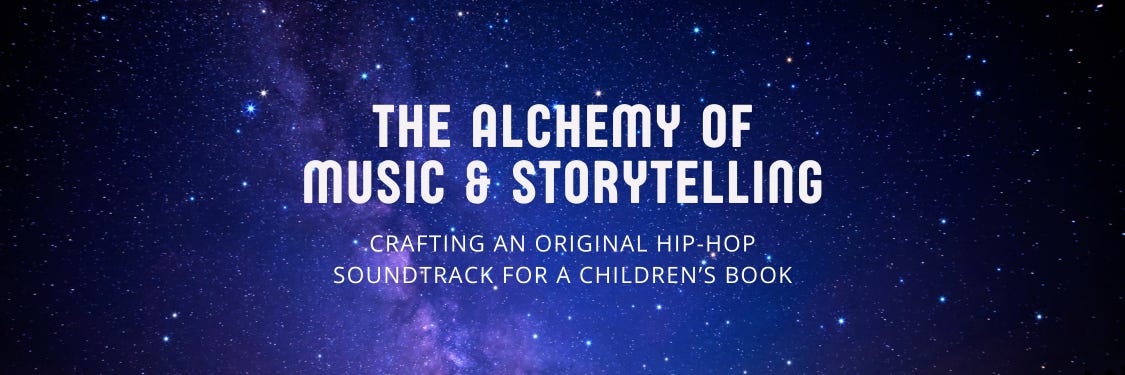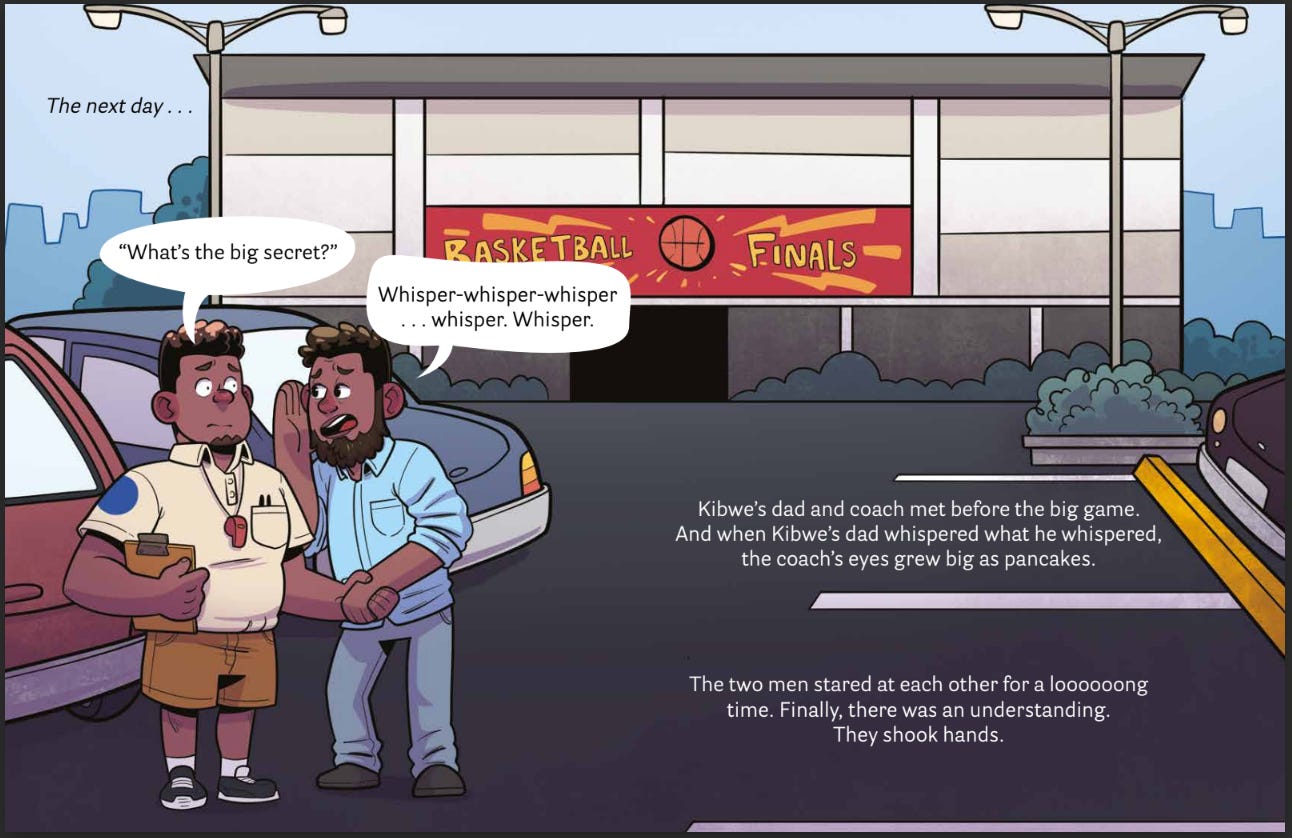The Alchemy of Music and Storytelling
Take a peek into crafting an original hip-hop soundtrack for a children’s book.
This is a fun one!
We love exploring the interplay between media in storytelling. There are many ways to engage a young audience, and music is no exception.
Across cultures, a child’s very first touchpoint into storytelling is often through music and song. Think of classic lullabies and nursery rhymes.
So we wondered, what if we created an original soundtrack for a children’s book?
We engaged influential hip-hop musician Mani Draper to come up with a few kid-friendly songs for The Switch, which debuted last week, highlighting and expanding different plot points in the basketball-centric story.
Basketball and hip-hop share a tight-knit relationship, and we got curious about how the story would translate melodically to add another layer of emotion and character development.
The outcome? A dope set of songs we’re sharing with you right here, in this week’s newsletter.
Ready to dive into our creative studio? Keep reading.
The goal for the songs was to give introspection into what the main characters think and feel at critical junctures in the story. We provided Mani with a beat sheet of the script and some exploratory questions.
The story beats and prompts are outlined below.
In the beginning Kibwe, the main character, is cookin’ on the court and wins MVP.
What does it feel like when he's playing this well?
What is he thinking?
How does the game look and feel to him?
How does he think about or consider his teammates and coach in these moments?
Listen to Serve - by Mani Draper
Kibwe’s dad is worried that his son is getting the wrong life lessons from the game. Lying awake at night, he decides to text the coach to ask if he can meet him in the parking lot to talk before they go into the championship tomorrow.
What's going through the dad's head as he struggles with whether to insert himself or let it be?
What are his concerns or fears for his son's growth as an athlete and a person?
How might he be worried about how his son will react to what he's thinking about doing?
Listen to Dad’s Plan - by Mani Draper
Coach and Dad meet in the parking lot before the championship.
Dad asks the coach to bench his son. Wants to challenge him to think about the other ways he can show up for his team besides scoring.
Will his son disappear on his team because he can't contribute in the way he's used to? Or will he find new ways to help?
How does the coach feel about this request? Is he afraid the players and parents will be upset or ask for his removal for not playing their best scorer even if it is at his own dad's request?
What are the two men thinking and feeling as they have this private discussion before the big game?
Listen to Lessons - by Mani Draper
Kibwe learns he isn't starting. The game is underway and Kibwe's team is getting beaten badly.
Kibwe is trying everything to get his coach to put him in, begging, pleading, whining, temper tantrums, pouting, etc. but to no avail.
What is Kibwe feeling in this moment?
What is the coach feeling?
How is the team feeling?
As Kibwe goes through his cycle of emotions/attempts to be put into the game, what does that sound and feel like?
Listen to Emotions - by Mani Draper
What’s next for Moonbeam?
We won’t spoil the rest of the book, but you can check out the FULL PLAYLIST HERE.
We love considering the hub and spoke model of story IP. If the underlying story is the hub, the spokes represent all the possible ways the story can be adapted–book, film, tv, new media, stage play, music, merchandise, etc.
Each thoughtful touch point creates another door to the story world. And, each child may first access the story through a different pathway.
Using The Switch as a case study, that entry point for a kid might start with the soundtrack, and lead to the book, or vice versa.
The possibilities are endless. That’s what we love about story-making.
Thanks for reading,
Jesse & Rebecca








